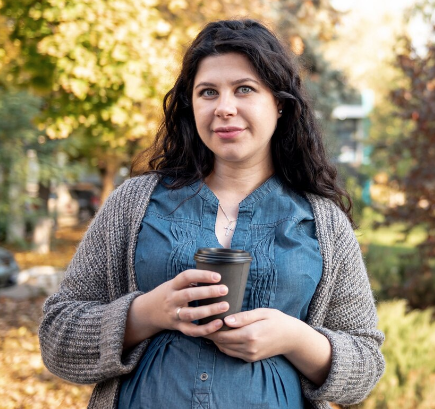Anxiety Can Cause Shortness of Breath: What You Need to Know and How to Manage It
Table of Contents
Anxiety’s Connection to Heart Health
It might feel like the air is being sucked out of your lungs while you’re stuck in traffic or going into a crowded room. When you breathe in deeply, you can’t seem to catch your breath. Your chest gets tight. You’re not the only one who has heard this before. One of the scariest signs of worry is shortness of breath, which can make you feel like you’re in great danger.
What is really going on? It’s not “in your head” to be anxious. You might think something is physically wrong when it’s not because it affects your whole body. This blog will talk about why worry makes you short of breath, what happens if you ignore it, and how to deal with it in a healthy way.
How Anxiety Can Cause Shortness of Breath?
Anxiety increases your body’s fight-or-flight reaction, which is a survival strategy that helps you avoid danger. While this response is helpful when you are actually in danger, it can produce undue worry in everyday situations.
What Happens During Anxiety?
Although anxiety-induced shortness of breath is unpleasant, it is not hazardous to most people. However, it is usually advisable to rule out underlying medical issues.
Dr. Prakhar D. Jain
The Science Behind the Anxiety-Breathing Connection
Your body and mind are very linked. Your autonomic nerve system takes over when you’re stressed. This system controls things like breathing and heartbeat that you can’t stop. When you have a worry attack:
- Your brain gets messages wrong; it sees danger where there is none.
- Adrenaline surges: This makes your breathing and heart rate faster, which can leave you short of breath.
- Your breathing changes. Instead of taking deep, relaxing breaths, you start breathing quickly and shallowly from your chest.
How Shortness of Breath Impacts Your Body and Mind
Shortness of breath can be more than just a physical sensation—it often spirals into a cycle of fear and discomfort. Here’s how it affects you:
Physical Impacts:
- Fatigue: Constant shallow breathing means your body isn’t getting enough oxygen, leaving you drained.
- Muscle Tension: Your chest muscles work harder, causing discomfort or pain.
- Dizziness: Hyperventilation can make you feel faint.
Emotional Impacts:
- Fear of Losing Control: The sensation of breathlessness can make you feel like you’re suffocating.
- Worsening Anxiety: Worrying about your symptoms often intensifies them.
- Avoidance Behavior: You may start to avoid situations where you’ve experienced shortness of breath, limiting your daily activities.
Understanding that these sensations are temporary and caused by anxiety—not a serious medical condition—is the first step toward managing them.
Dr. Prakhar D. Jain
Strategies to Regain Control When Anxiety Strikes
The good news? You can break the cycle of anxiety and shortness of breath. Here are practical techniques to help you breathe easy again:
Diaphragmatic Breathing
Also known as belly breathing, this technique helps calm your nervous system. Here’s how:
- Sit or lie down in a comfortable position.
- Place one hand on your chest and one on your abdomen.
- Breathe deeply through your nose, allowing your abdomen to rise.
- Exhale slowly through your mouth.
Grounding Techniques
Ground yourself by focusing on your surroundings, name five things you can see, four you can touch, three you can hear, two you can smell, and one you can taste.
Mindfulness and Meditation
Mindfulness practices help anchor you in the present moment. Apps like Calm and Headspace offer guided meditations specifically for anxiety.
Progressive Muscle Relaxation
Tense and relax different muscle groups in your body, starting from your toes and moving upward. This technique releases tension and helps you feel more in control.
Regular Exercise
Exercise reduces overall anxiety by releasing endorphins, your body’s natural mood elevators. Activities like yoga, walking, or swimming are particularly effective.
Keep a journal to track when and where your shortness of breath occurs. Patterns might reveal specific triggers.
Dr. Prakhar D. Jain
When to Seek Professional Help
While shortness of breath caused by anxiety is usually harmless, there are times when you should consult a healthcare professional:
- If your symptoms persist even when you’re calm.
- If you experience chest pain or dizziness.
- If your shortness of breath feels different from usual or gets worse over time.
Therapies like Cognitive Behavioral Therapy (CBT) can help you reframe anxious thoughts, while medications like SSRIs may be recommended for severe anxiety.
Breathing Easy Again
Shortness of breath caused by anxiety can feel overwhelming, but it’s important to remember that it’s manageable. By understanding the connection between your mind and body, you can break free from the fear that fuels this symptom. Techniques like mindful breathing, grounding exercises, and professional support are powerful tools to help you regain control.
Remember, you’re not alone in this. Anxiety is common, but it doesn’t have to dictate your life—or your breathing. Take it one breath at a time, and know that relief is possible.
Our Patient Recovery Stories



Frequently Asked Questions
Yes, anxiety can cause shortness of breath, a condition known as dyspnea. During an anxiety episode, your brain activates the fight-or-flight response, which increases your heart rate and causes rapid, shallow breathing. This reaction can make it feel like you’re not getting enough air, even though your lungs are functioning normally.
Anxiety-induced shortness of breath often occurs alongside other anxiety symptoms, such as a racing heart, sweating, or feelings of panic. It typically improves when you calm down or use relaxation techniques. Medical conditions, on the other hand, often cause persistent or worsening symptoms regardless of your emotional state. If you’re unsure, consult a doctor to rule out underlying health issues.
While anxiety and heart attack symptoms can feel similar, they’re usually different in nature. Anxiety-related shortness of breath often comes with a sense of dread and other psychological symptoms, while heart attack symptoms include persistent chest pain, pain radiating to the arm or jaw, and nausea. When in doubt, always seek medical attention.
For most people, shortness of breath from anxiety is not dangerous. However, if left unmanaged, frequent episodes can lead to hyperventilation, dizziness, and fainting. Additionally, the stress from chronic anxiety can negatively impact your cardiovascular health over time.
Try the following:
- Diaphragmatic Breathing: Breathe deeply into your abdomen rather than your chest.
- Grounding Techniques: Focus on your senses by naming things you see, hear, and feel around you.
- Reassurance: Remind yourself that this feeling is temporary and caused by anxiety, not a medical emergency.
These steps can help you regain control over your breathing.
Shortness of breath during anxiety happens because of hyperventilation. When your body enters fight-or-flight mode, you start breathing faster and more shallowly to take in more oxygen. This can lead to a sensation of breathlessness, even though you’re getting plenty of air.
Chronic anxiety and frequent shortness of breath episodes can lead to:
- Hyperventilation syndrome, where your body becomes overly sensitive to carbon dioxide levels.
- Sleep disturbances, as anxiety-related breathlessness can interfere with restful sleep.
- Strain on your cardiovascular system, especially if you have an existing heart condition.
Managing anxiety effectively can help prevent these complications.
Yes, long-term solutions include:
- Therapy: Cognitive Behavioral Therapy (CBT) is highly effective in managing anxiety triggers.
- Lifestyle Changes: Regular exercise, a healthy diet, and adequate sleep reduce anxiety.
- Relaxation Techniques: Mindfulness meditation and yoga can help you stay calm.
- Medication: In severe cases, doctors may prescribe anti-anxiety medications or SSRIs.
Yes, if your symptoms are persistent, worsen over time, or interfere with your daily life, it’s a good idea to consult a doctor. They can rule out medical conditions and recommend appropriate treatments for anxiety.
While you may not be able to eliminate anxiety entirely, you can reduce the frequency and intensity of symptoms by:
- Identifying and addressing your anxiety triggers.
- Practicing regular stress-relief techniques like meditation and exercise.
- Keeping a symptom journal to track patterns and develop coping strategies.

About Dr. Prakhar D. Jain
Dr. Prakhar D. Jain is an experienced psychiatrist specializing in child and neuropsychiatry. With an impressive background that includes an MBBS, M.D. in Psychiatry, and PDF in Emergency Mental Health (USA), Dr. Jain provides comprehensive mental health solutions through his practice at Sir JJ Hospital, Wadia Hospital, and Royal Clinic in Mumbai.
For more information or to schedule a consultation:
Initiatives by Dr. Prakhar Jain
- IKIGAI: Comprehensive treatment for neurodevelopmental disorders.
- Sobriety: Effective de-addiction services.
- The Psychiatrist Says: Telepsychiatry and teletherapy for accessible mental health care.
- Centre of Excellence for Psychiatry & Neurology: Comprehensive dementia and old age issue management.
- Intimacy Intervention: Solutions for intimate issues affecting sexual satisfaction and fertility.
- The Soul Spa: Complete mental and emotional health solutions through advanced methods like biofeedback and behavioral therapy.
Understanding and managing stress is not just about surviving; it’s about thriving. Take control of your mental health with the guidance of Dr. Prakhar D. Jain and make stress management a priority in your life.

Dr. Prakhar D. Jain
MBBS, M.D. (PSYCHIATRY), PDF, EMH (USA)
Child & Neuro Psychiatrist.
Dr. Prakhar Jain is a Psychiatrist in Mumbai, and has an experience of 7 years in this field. Dr. Prakhar Jain practices at Sir JJ Hospital, Wadia Hospital & Royal Clinic in Mumbai. He completed MBBS from Indira Gandhi Government Medical College, Nagpur and M.D. (Psychiatry) from Grant Medical College and Sir JJ Hospital, Mumbai.
Your brain tells your body to take in more oxygen, ready you to fight or flee.
- The muscles surrounding your lungs constrict, giving you the sense of having trouble breathing.
You begin to breathe shallowly and quickly, lowering carbon dioxide levels in your bloodstream. This can cause lightheadedness or dizziness.
